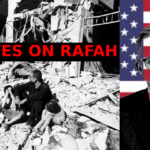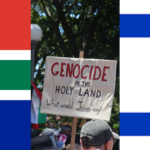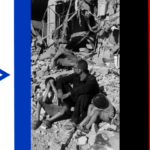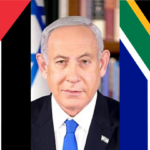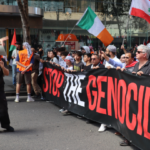As Israel Establishes Extermination Zones, South Africa Calls for ICJ Intervention
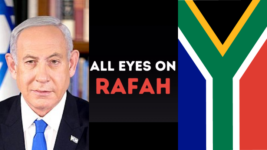
Over the last seven months, Israel has carpet bombed, chased, traumatised and humiliated Palestinians across the Gaza Strip, to the point that 1.5 million of the 2.3 million civilians are now congregated in the southernmost city of Rafah, which has euphemistically been deemed a safe zone.
Gaza was one of the most densely populated regions on Earth in October, and now, 65 percent of its population is crammed into Rafah. And despite months of calls from the UN not to attack these trapped people, the Netanyahu government commenced assaults upon them early last week.
Yet, while US president Joe Biden and his henchman Blinken perform staged handwringing, including threats of weapons denial, in response to Rafah, the truth is the US and its allies, including Australia, have backed Netanyahu to the hilt and supplied him with the arsenal to conduct a genocide.
This should long be over, however, as the International Court of Justice issued provisional measures on 26 January relating to a genocide case South Africa brought against Israel, ordering Tel Aviv to halt its actions comprising what the court ruled a “plausible” genocide, as well as to restore aid.
And with the early stages of the ground assault on Rafah underway, South Africa, a state that overcame its apartheid regime, a low-tech version of what now operates in Israel, has called on the ICJ to immediately issue fresh orders, “due to the very survival of Palestinians in Gaza as a group”.
An escalation in irreparable harm
“The Republic of South Africa regrettably finds it necessary to return to the court to seek an urgent order… as a result of Israel’s ongoing military assault on Rafah,” the application for the modification and issuance of new orders to the World Court begins.
The application underscores that fresh orders are necessitated as “the Israeli assault on Rafah” is giving “rise to new facts that are causing irreparable harm”, and it requests the ICJ president call on Israel to end its refusal to act on orders, as it continues to make a travesty of international justice.
There are three key “changed circumstances” that require new orders identified in the document.
The first is that Rafah is the last refuge in Gaza for the 1.5 million Palestinians in the southern city, as well as being “the last viable centre… for habitation, public administration, and the provision of basic public services, including medical care”.
The second development is that in having seized Gaza early last week, Israel has “total control” over all entry points and has cut off all forms of aid to a population slipping into famine, as it has been purposefully starved by Israel, in breach of international humanitarian law, since last October.
And the third issue requiring fresh orders is that the Gaza population and its medical system is “at extreme risk”: evidence shows evacuation areas are treated as extermination zones, hospitals have been destroyed, mass graves discovered, and artificial intelligence is being used to produce kill lists.
“All three present the gravest and most urgent risk of irreparable prejudice to the rights in issue in the case, and require urgent intervention and investigation,” the South African state warns.
Justice served denied
South Africa lodged its initial case against Israel with the ICJ on 29 December, alleging that the actions of the Israeli military in the Gaza Strip since last October had been in breach of the 1948 Convention on the Prevention and Punishment of the Crime of Genocide.
At the time, 22,000 Palestinians, overwhelmingly civilian and the majority comprising women and children, had been senselessly slaughtered. And while the official toll now stands at 35,000, with so many caught under the rubble, there are likely over 40,000 murdered.
South Africa advises in its new claim that 600,000 Palestinians under 18 years of age are currently trapped in Rafah.
Not only is Rafah under siege, but the entire 40-odd-kilometre-long Gaza Strip is enclosed by border walls, meaning there is nowhere to flee from the site of genocide.
And as the hearings took place over the 11th and 12th of January, global commentators considered that of the 15 justices of the ICJ, plus the two additional judges representing each nation involved in the case, the majority would vote in favour of Israel in line with their nation’s political alliances.
But 15 of the 17 judges, including those from the US and Australia, voted in favour of Israel having to report back on how it had been preventing genocidal acts a month from then, while 16, including Israel, agreed that Tel Aviv should prevent public incitement to genocide and restore adequate aid.
This outcome from the highest court on the planet restored faith in the international system of justice established post-World War II. Yet, Israel’s mass perpetration of war crimes over the last seven months and its refusal to take any heed of the court, serve to undermine established order.
All eyes on Rafah
The attack on Rafah, marking the most heinous crime post-World War II, is further destroying any notion of an international rights-based justice system. And Israel has set the bar exceedingly low for all future war from now on, unless measures are taken to ensure it does not remain the new norm.
The newly mobilised global freedom movement for Palestine is right now calling for “all eyes on Rafah”, referring to the ability that antiwar-antigenocide activists now have to watch over the mass atrocities currently unfolding, due to the onset of online livestreaming and social media platforms.
Australian PM Anthony Albanese has reiterated his opposition to the Rafah attack, however, as Greens Senator David Shoebridge pointed out recently, Australia exported $1.5 million worth of “arms and ammunition” to Israel in February alone, after the ICJ plausible genocide determination.
Albanese, his government, the opposition and the mainstream media aren’t altering the public or appropriately addressing the barbarism commencing in the southernmost point of Gaza, as they’ve rather been distracting attention from it via the charging of antigenocide uni protests as antisemitic.
The university Gaza solidarity encampments are part of a global movement, commencing in the US and springing up at local unis three weeks ago. And these demonstrations are being demonised for precisely drawing attention to the assault on Rafah, despite our PM’s stated opposition to it.
The pro-Palestinian university student protesters are winning the battle for public opinion, however, as the government attempt to conflate opposition to genocide with hate towards Jewish people, relies on a constituency with a much lower collective IQ than the federal Labor has to deal with.
And the supreme symbolism conveyed by the 12 May Palestine Action Group rally, marking its 31st week in a row, as it marched up Sydney’s Broadway, along unceded Gadigal land, to join the Sydney University Gaza camp, clearly underscored that a grassroots shift in opinion is taking broader hold.


